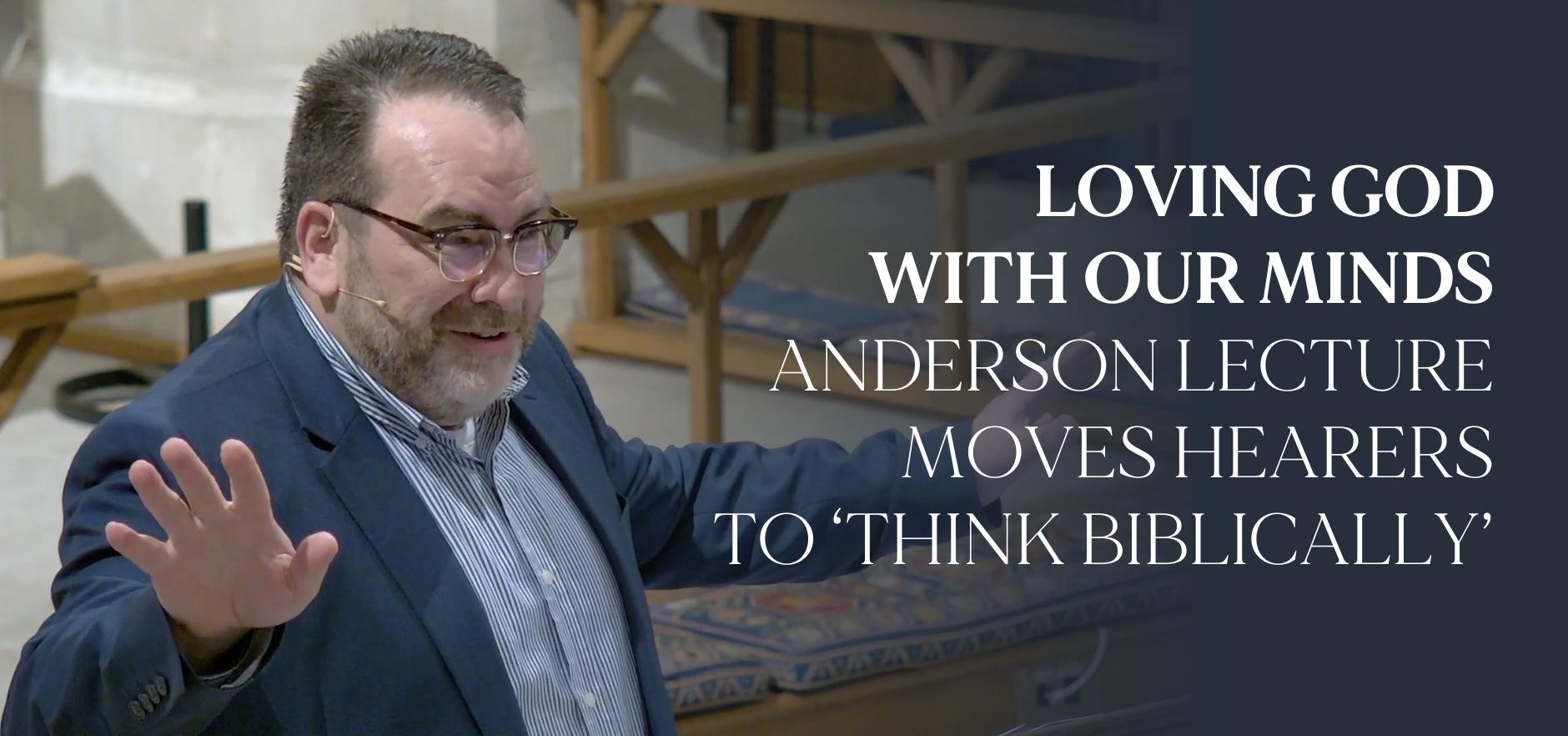There can be no doubt that Dr. Garwood “Gar” Anderson, who has served as dean of Nashotah House, an Anglo-Catholic seminary in Nashotah, Wisconsin, since 2017 and has taught at the school since 2007, is an academic. After 17 years of various positions on different college campuses with Intervarsity Christian Fellowship (1984-2001), he served on the faculty of Asbury Theological Seminary’s Orlando campus from 2002-2007. He has also taught as a visiting professor at Bethel Theological Seminary, Trinity Evangelical Divinity School, Reformed Theological Seminary and the West African Theological Seminary in Lagos, Nigeria.
This professional experience as an academic was apparent in Anderson’s lecture titled “Strangers, Aliens and Citizens: First-Century Wisdom for a 21st-Century Church,” presented at the Cathedral Church of St. Luke, Orlando, on the evening of March 31. However, his presentation also offered practical and spiritual implications drawn from theological and academic insights.
“I am drawn to 1 Peter because the ecclesial vision there is one that we need to hear in our day, in the midst of a lot of ecclesial Christian confusion in our culture,” Anderson said in the introduction to his lecture. “I think it speaks today in a very powerful way.”
“Gar Anderson is a full and complete evangelical, somebody who’s committed to the centrality of scripture and the mission of the church in preaching and evangelism, what it means for the church to be a visible witness for Christ,” said The Rt. Rev. Gregory O. Brewer, diocesan bishop in a response to the lecture. “And all of those were the things that he brought to his presentation.”
Anderson views 1 Peter as instructive to modern ecclesiology, the theology of the church, describing the ancient letter as “less of a corrective or a recipe for ecclesial renewal than it sees the church (albeit never so named) as renewal, as a new covenant fulfillment of Israel’s promise and bearing and imparting eschatological life to its members and to the world.” He also believes 1 Peter helps set forth the church’s identity via two key words: “elect sojourners.”
“What Anderson discovered in looking into the text of 1 Peter is that there was a way of translating a particular phrase – his translation of it would be ‘elect sojourners’ – that actually diluted the missionary message of the book,” Brewer explained. “And so his paper was in some ways an effort to try to correct what he felt like was a less than authentic translation of that particular phrase and to see those things as both descriptive and connected.”
“We have been called by God not just to belong, but to proclaim, in word and deed,” Anderson said. That concept, Brewer said, moved him “to think again about both the privilege as well as the responsibility of being numbered among those who have been chosen by God, the elect.”
“If the understanding of what it means to be elected and what it means to be sojourners were separate, they lose some of their force that is created when they’re seen together,” the bishop added. “They really work for [Anderson] as two sides of a single identity. … If I’m called by God to live as a sojourner, that actually gives me a missionary purpose. That’s not a call to isolation.”
In other words, “‘Sojourner’ or ‘stranger’ is seen in 1 Peter as how we express that chosenness,” Brewer said. “How do I live that out? How do I intentionally live in ways that both separate me from the world and yet thrust me even more deeply into it?”
“You don’t have to join a golf club to be a golfer,” Anderson said to illustrate the uniqueness of the church as set forth in scripture. “This is not Christian ecclesiology. There is no coming to Christ whereby we are not also incorporated into the body of Christ. Period. Full stop. Whether we like the golf pros or not.”
Brewer said this aspect of Anderson’s teaching pointed him to the fact that “If I’m going to live into that identity [as an elect sojourner], then I need all the help I can get. And so God’s provision for that is really my fellow believers in Christ.
“And that’s what I’m joined to in baptism, both in Christ as well as to Christ’s body,” he added. “And therefore, I should have the opportunity to live that out in concert with my fellow Christians. … again, how can I intentionally find ways to live that out?”
“I’m really grateful to scholars like Dr. Garwood Anderson, because a part of what it means to be a Christian is the challenge to learn how to think biblically,” Brewer said. “And Dr. Anderson’s talk really challenged me to that task. And I’m grateful for that because learning to love God with my mind is as important a part of my discipleship as any other discipline.”
To view Anderson’s lecture in its entirety, visit this link.

